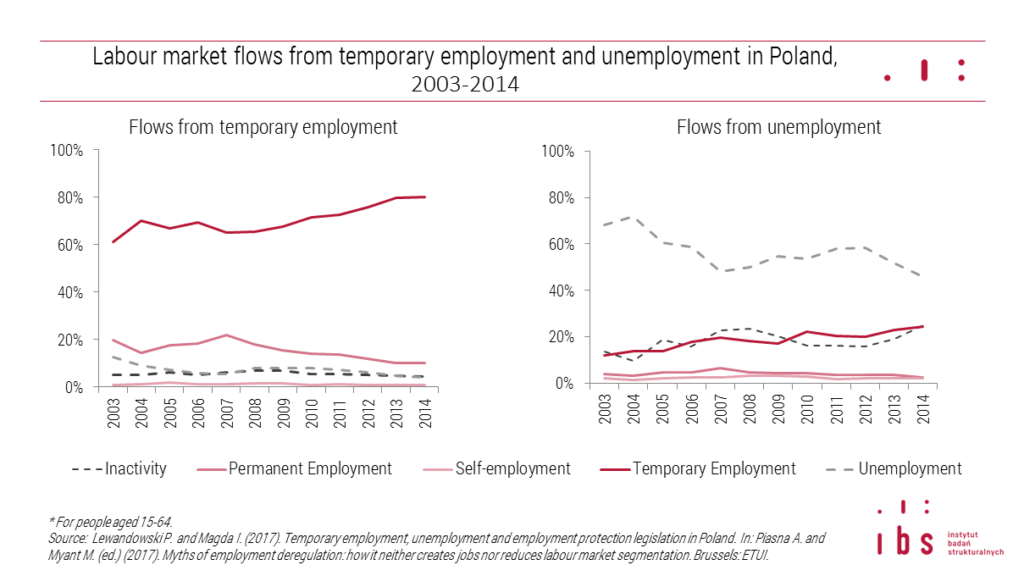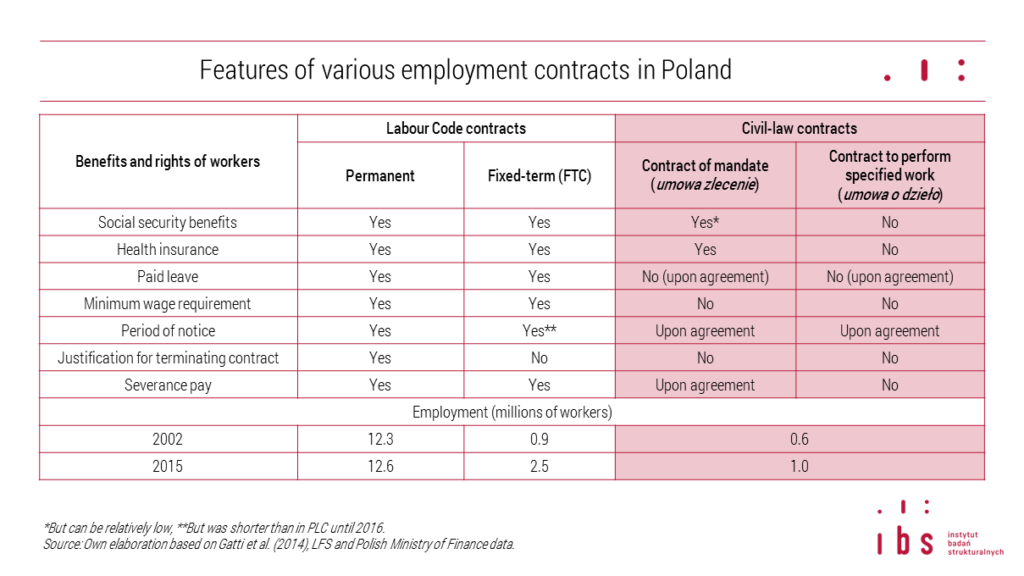The book titled “Myths of employment deregulation: how it neither creates jobs nor reduces labour market segmentation” discusses the effects of changes in employment regulation in ten EU countries (Spain, Italy, Estonia, Slovakia, Poland, Germany, France, Denmark, and the UK). The main conclusion drawn by editors Agnieszka Piasna (ETUI) and Martin Myant (ETUI) is that reduction in employment protection does not reduce unemployment nor temporary employment.
Poland – the highest share of temporary workers in the EU
The chapter “Temporary employment, unemployment and employment protection legislation in Poland” written by Piotr Lewandowski and Iga Magda from our Institute presents stylised facts on the temporary employment growth in Poland, analyses the links between employment protection legislation and temporary employment boom, and discusses other regulatory factors which might have contributed to the growth of temporary employment.
Between 2002 and 2015 temporary employment in Poland grew by 2 million workers while permanent employment increased by 300,000. Since 2014, Poland has been the country with the highest share of temporary workers in the EU. The issue of precarious employment has become the main labour market concern in Poland. Young (aged 20-39) and low educated people are to the highest extent affected by the proliferation of temporary contracts in Poland.
The unemployed individuals were more likely to find a temporary job than a permanent job since the early 2000s. However, worker flows from temporary jobs to permanent jobs have decreased over time which has expanded the pool of temporary workers.

The temporary employment boom in Poland was not triggered by any substantial regulatory changes
Piotr Lewandowski and Iga Magda show that the temporary employment boom in Poland was not triggered by any substantial regulatory changes. They discuss regulations and incentives to use particular types of temporary employment. They argue that the interactions between multiple regulatory incentives and a gradual erosion of labour standards are the likely factors behind the temporary employment boom in Poland. Although temporary contracts are more common in the private sector than in the public sector, the rising incidence of temporary contracts in the public sector, including education and healthcare, might have contributed to the acceptance of precarious forms of work. The authors also assess recent policy initiatives to reduce temporary employment in Poland.

You can find the book below or at: link.
***
The European Trade Union Institute (ETUI) is the independent research and training centre of the European Trade Union Confederation (ETUC) – the “umbrella organization” representing workers from almost 90 trade unions in Europe. The ETUI conducts studies about labour market and industrial relations and monitors policy developments influenced on labour markets in Europe.

